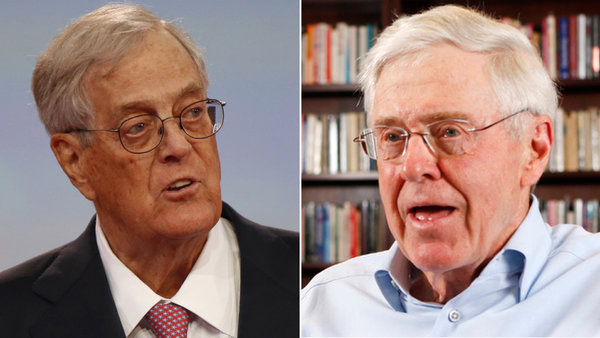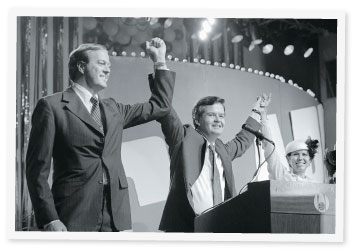February 28, 2011- Part of Wisconsin Gov. Scott Walker's union-busting agenda is including a "right to work" rule for public-sector employees. Several other Republican governors are considering similar measures for both the public and private sectors. Insofar as they succeed, these right-to-work measures will seriously weaken the bargaining power of workers.
"Right to work" is a great name from the standpoint of proponents, just like the term "death tax" is effective for opponents of the estate tax, but it has nothing to do with the issue at hand. It is widely believed that in the absence of right-to-work laws workers can be forced to join a union. This is not true. Workers at any workplace always have the option as to whether or not to join a union.
Right-to-work laws prohibit contracts that require that all the workers who benefit from union representation to pay for union representation. In states without right-to-work laws, unions often sign contracts that require that all the workers in a bargaining unit pay a representation fee to the union that represents the bargaining unit.
The logic is straightforward. When a union is recognized as representing a bargaining unit, it legally must represent every worker in that unit, whether or not a worker opts to join the union.
This means not only that nonmembers get the same wages and benefits that the union negotiates with the employer, but the union is also obligated to represent any nonmember individually if that worker gets in a dispute with the employer over an issue covered in the contract. For example, if a nonunion member is threatened with a discipline action or firing, the union must defend this worker's rights just the same as if they were in the union.
Right-to-work laws prohibit workers from being required to pay for this union representation. What right-to-work laws actually guarantee is the ability for a worker to benefit from union representation without having to pay for union representation.
Copyrights provide a good analogy to this situation. As we know, it costs money to produce recorded music or movies. All the people who take part in the productions, musicians, actors, technical assistants, and others need to be paid.
Copyright is a mechanism that allows these people to be paid for their work. (It is not the only mechanism for financing creative work, but it is currently the main mechanism for generating revenue for those involved in producing creative work.) Under copyright law, the holder of the copyright is given a monopoly over the distribution of the copyrighted material. The copyright holder can sue for damages anyone who distributes or uses copyrighted material without their permission.
If we applied the logic of right-to-work laws to copyright, then copyright holders would be prohibited from taking steps to enforce their copyright. If people chose, they could pay the copyright protected price for music or movies, but they would also have the option to freely download copyright protected material without paying the copyright holder. And there would be nothing the copyright holder could do.
This would be the parallel of "right to work" in the copyright world. As it stands, copyright holders are having a difficult time enforcing their copyrights and getting paid for their work (which might suggest a more modern mechanism for financing creative work would be desirable), but imagine that copyright holders had no legal recourse.




'Truthout: Right to Work: Representation Without Taxation' have no comments
Be the first to comment this post!